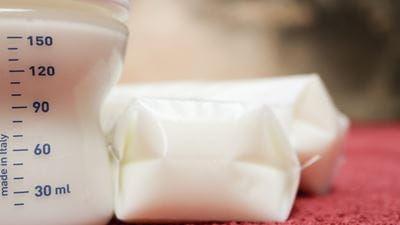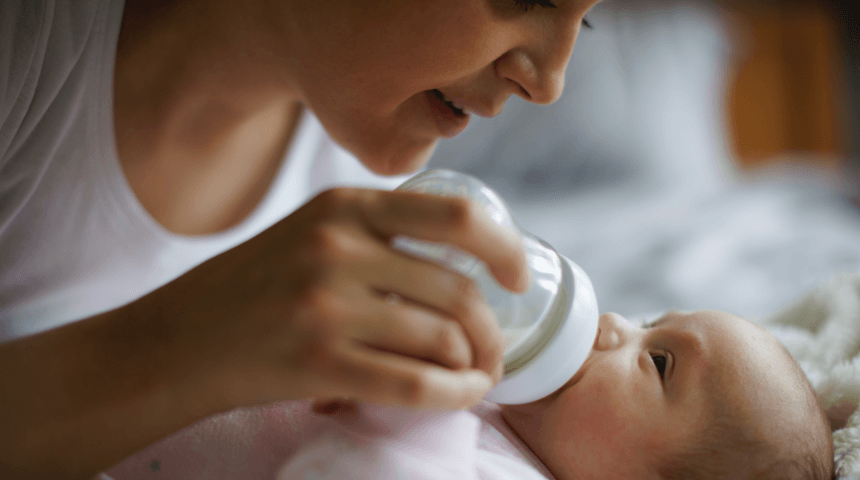It’s not a secret that breast milk is beneficial for newborns, particularly when they are premature or sick. Not only does breast milk provide nutrients unavailable in formula, human milk also decreases the incidence of a baby developing necrotizing enterocolitis (NEC), the most common and serious intestinal disease affecting premature babies.
But what happens if the mom is unable to provide milk? That can happen if the mom is sick or unable to pump milk. Mothers' Milk Bank of Florida, a member of Human Milk Banking of North America, can help. This nonprofit organization was developed to promote the health and wellbeing of newborns, especially underweight and premature babies, or newborns who are sick and cannot get milk from their mothers.
Winnie Palmer Hospital for Women and Babies was one of the sponsors of the milk bank when it originated and is now a client as well as a drop off milk depot, or location, for breast milk donations.
How Milk Banks Work
Any lactating woman is eligible to donate milk, but there are strict measures in place to ensure the milk is safe. If you are producing more milk than is needed, you can contact Mother’s Milk Bank of Florida for a phone interview and complete a secure, online questionnaire, covering medical, lifestyle and social history. Next, you’ll give the milk bank permission to contact your healthcare provider and your baby’s healthcare provider to ensure you are healthy enough to donate. Then, you’ll complete a free blood screening test.
Once you’re cleared, you can begin to donate. When you begin collecting and donating milk, good hygiene during the process is essential. Pumps, bottles and all equipment need to be clean. The collected milk must be frozen and cannot be kept for more than eight months before donating. To donate, you can either bring breast milk to Mother’s Milk Bank of Florida or a local milk depot, such as the one at Winnie Palmer Hospital. You can also send frozen milk from your home to a depot in a cooler that is sent to you.
For babies to receive milk, a physician must make a recommendation or provide a prescription. Milk from milk banks are primarily given to babies in the hospital, although some may get it once they go home. Although milk is mostly for premature babies, it can also be given to term babies who for some reason are unable to digest formula, perhaps because of allergies, formula intolerance or malabsorption syndromes.
A Cost Effective Solution
According to Mothers’ Milk Bank, NEC can increase the length of a baby’s hospital stay by two weeks, for an additional cost of $128,000 to $238,000. Donor human milk means a baby can go home sooner and with fewer complications.
If you’re interested in donating breast milk, please contact Mothers’ Milk Bank of Florida by emailing [email protected] or calling (407) 248-5050.
Learn More About the Milk Depot at Winnie Palmer Hospital for Women & Babies
Do you have extra breast milk? The Milk Depot at Winnie Palmer Hospital for Women & Babies serves as a safe, controlled milk collection point.
Learn More





